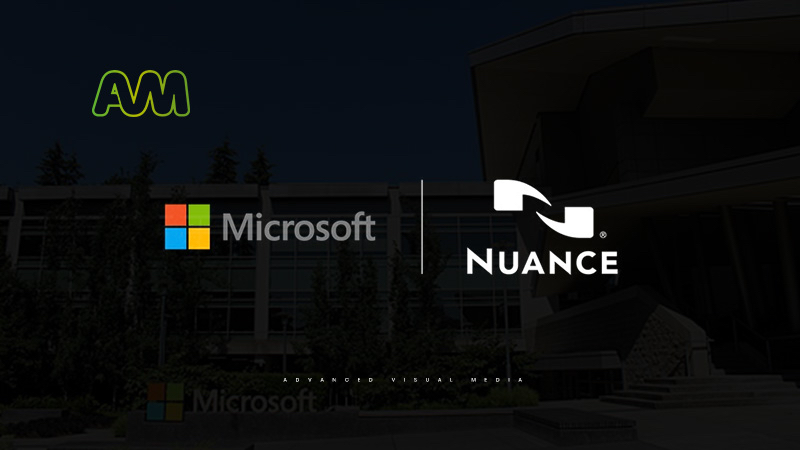
Amazon Takes on CVS Walgreens with One Medical Buyout
Amazon has completed its acquisition of One Medical, a primary care organization, for $3.9 billion. The deal, which was announced in July, is part of Amazon’s expansion into the healthcare industry, which already includes Amazon Pharmacy and Amazon Clinic. One Medical, previously owned by 1Life Healthcare, has over 800,000 members and operates in more than 20 markets. The company offers a membership-based service that provides both virtual and in-person medical care. To attract new customers, the companies have announced a 28% discount on membership fees for the first year. While anti-monopoly groups have expressed concern about the achievement, the Federal Trade Commission has decided not to take legal action at this time.
In this article, we’ll take an in-depth look at Amazon’s recent expansion into the medical field.
Amazon and One Medical Merger: Implications for Healthcare and Patient Data
In June 2022, Amazon made headlines with its acquisition of primary care provider One Medical for $3.49 billion in cash. This acquisition marks Amazon’s entry into brick-and-mortar doctor’s offices and its expansion into virtual healthcare offerings. With this purchase, Amazon seeks to accelerate its growth in the US healthcare industry, following its successful launch of Amazon Care for its employees in Seattle and its attainment of online pharmacy PillPack.
At a recent panel discussion, One Medical CEO Amir Dan Rubin addressed concerns over data privacy related to the company’s recent acquisition by Amazon. Rubin stated that the purchase is focused on building long-term relationships with individual members, and that the deal has nothing to do with patient data. He argued that hosting healthcare companies like One Medical on Amazon Web Services is more secure than decentralizing data in the cloud. During the panel discussion, Rubin emphasized One Medical’s subscription model and how it could improve access to primary care. He expressed hopes that the partnership with Amazon would further expand One Medical’s reach and make healthcare more accessible and affordable for patients.
Moreover, One Medical has over 200 office locations in 26 markets, primarily through employer-sponsored insurance, and Amazon aims to revamp the primary care experience for customers by combining One Medical’s care model with its funding and platform. However, the acquisition has drawn attention from lawmakers, including Senator Amy Klobuchar, who chairs the Senate Judiciary Subcommittee on Competition Policy, Antitrust, and Consumer Rights, has called for the Federal Trade Commission (FTC) to investigate the acquisition’s implications for personal health data.
The $3.9 billion buyout of One Medical by Amazon was completed on February 22, 2023, and new US customers can avail of a discounted membership fee of $144 for the first year. Despite concerns about antitrust issues, analysts believe that Amazon’s limited presence in healthcare should minimize regulatory challenges. Nevertheless, anti-monopoly groups have been calling on the FTC to halt the merger, citing concerns for patient privacy and the online retailer’s marketplace dominance. Last September, both One Medical and Amazon received a request for additional information from the FTC. The FTC spokesperson stated that the agency won’t file a lawsuit to block the combination, but it is not ruling out any difficulties in the future.
Antitrust experts suggest that regulators are unlikely to try and undo the Amazon-One Medical deal unless there is evidence of mishandling patient data. Even if challenged, unwinding the transaction is much harder than blocking it, and such cases are very rare. David Balto, an antitrust attorney and former policy director of the FTC, believes that regulators would only seek to unwind the deal if Amazon goes against its own interests and the principle of consumer sovereignty. He also notes that expanding into different markets may ultimately benefit consumers, despite opposition from competitors.
How One Medical’s Buyout Could Revolutionize Primary Care Services
Amazon’s recent acquisition of One Medical, is expected to significantly impact the healthcare industry, particularly with regards to care delivery. One Medical has more than 200 brick-and-mortar physicians’ offices with approximately 815,000 members, providing main care, diagnostics and therapeutics, care coordination and remote monitoring, and enterprise health IT. This investment will broaden Amazon’s already extensive health care portfolio, but the company still has a long way to go to catch up with retail primary care providers like CVS Health and Walgreens Boots Alliance.
Besides, if Amazon’s bet pays off, it could require providers to invest significantly and redesign their delivery models to keep up with higher consumer expectations created by the One Medical-Amazon model.
Another advantage is the ability to expand a model for more convenient, affordable care. One Medical already has thousands of employer relationships for its tech-enabled primary care platform. This deal gives Amazon the ability to present a relevant story to employers who are looking to shape a different, more efficient, and inexpensive health care journey for their workers.
The acquisition of One Medical also positions Amazon to tackle price transparency, which has been a key piece of the holy grail Amazon has been after for years now. One Medical has a strong relationship with health systems, which could give the company a path to see the true costs of referrals. Amazon could combine One Medical records with data it has from prescriptions and expenditures to grow a fuller picture of patient care costs.
Nonetheless, there are still concerns about possible harm to competitors and consumers that may result from Amazon’s control and use of sensitive consumer health information held by One Medical. The Federal Trade Commission (FTC) continues to investigate the deal over these concerns, including the potential for Amazon to misuse patient information for other purposes such as targeted advertising or e-commerce.
Furthermore, in a retrospective cohort study of 2,809 hospital admissions randomly selected from 11 Massachusetts hospitals during 2018, adverse events occurred in nearly one in four cases (23.6%). Among these adverse events, 222 (22.7%) were deemed preventable, and 316 (32.3%) had a severity level of serious or higher. Adverse drug events were the most common type of adverse event, followed by surgical or other procedural events. The study authors stress the importance of continuing improvement to ensure patient safety.
While the immediate impact may be limited, the acquisition of One Medical positions Amazon to transform the consumer, employer, and Medicare markets with a more connected and convenient model of care. One Medical’s consumer-focused approach, which provides easy access to care and personalized engagement, aligns with Amazon’s track record of disrupting industries by addressing consumer frustrations. This arrangement gives Amazon the opportunity to leverage its ability to gain and maintain consumer trust and permission to revolutionize healthcare. It’s like converting a large assembly line into a small job shop or even a 3D printer version of delivering on-demand, highly relevant, ultra-convenient care.
For Amazon, it’s an opportunity to reshape healthcare delivery and for incumbents, it’s a challenge to adapt to the new paradigm or risk being left behind.
In conclusion, Amazon’s acquisition of One Medical may not have an immediate impact, but in the long-term, it positions Amazon to offer a more connected and convenient model of care for consumers. By capitalizing its ability to gain and keep customer trust and permission, Amazon could disrupt the healthcare industry and redefine their expectations of care. This may entail incumbent suppliers to invest significantly and redesign their delivery models to keep up with higher purchaser expectations.
As Tom Lee, founder of Galileo and One Medical, said, “Amazon and One Medical share the same mindset of patient-centeredness, a focus on value and efficiency, and utilization of technology”.


